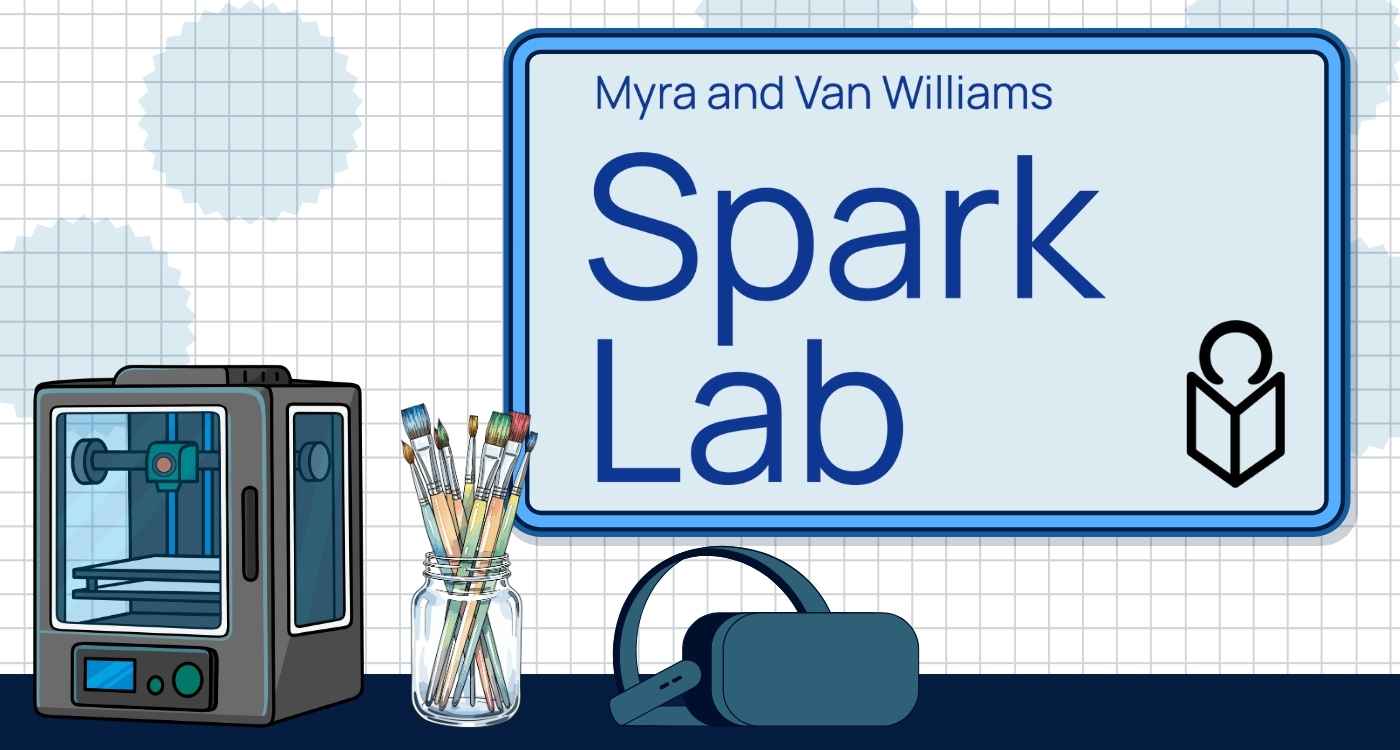
If you have visited Youth Services over the last nine months, you may have noticed some changes on the third floor: the sounds of hammering and drilling, new walls and windows installed, and fresh coats of paint.
After several years of planning and a few busy seasons of construction, we are so pleased to present the Myra and Van Williams Spark Lab. Through generous private donations and Municipal funding, this dedicated STEAM-based education space will support students in kindergarten to grade 12 through a variety of guided programs and workshops. Featuring a 3-D printing bar, woodworking and laser cutting tools, integrated technology, and sewing machines to highlight just a few, the Spark Lab provides a strong infrastructure for our existing STEAM programming and new possibilities for learning and exploration in science, technology, engineering, art, and mathematics.
In its inaugural month, consider registering for these February programs:
- February 3: Tinker Tuesdays: This monthly building and engineering program invites kids in grade three to five to create, design and problem-solve. February features Rigamajig, a large-scale building system. (Registration not required.)
- February 8: Intro to Sewing for Teens: Led by an instructor from Pennington Quilt Works, teens learn sewing basics and complete a small project using our new sewing machines.
- February 10: Game On for Teens: Explore the latest in video game technology and design in this play session featuring the Nintendo Switch 2. (And stay tuned for future workshops to learn how to make your own video games!)
- February 13: Card Making Workshop: Create handmade cards to share messages of love and friendship. We’ll have lots of crafty materials on hand to help express your appreciation to a dear one. (Registration not required.)
- February 14: Science Saturdays: Students in fifth through eighth grades complete interactive hands-on science activities with a team of Princeton University scientists in this monthly partner program.
- February 27: Pokémon Party: Join us as we celebrate the 30th anniversary of Pokémon. We’ll have Pokémon-themed arts, crafts, and activities in the Spark Lab and CoLab Space. (Registration not required.)
Many more workshops and classes are in the works, and we can’t wait to see how the Spark Lab inspires the youth of the third floor. For the latest updates, please check our Events Calendar and be sure to subscribe to the Kids, Teens, and Families monthly newsletter.
